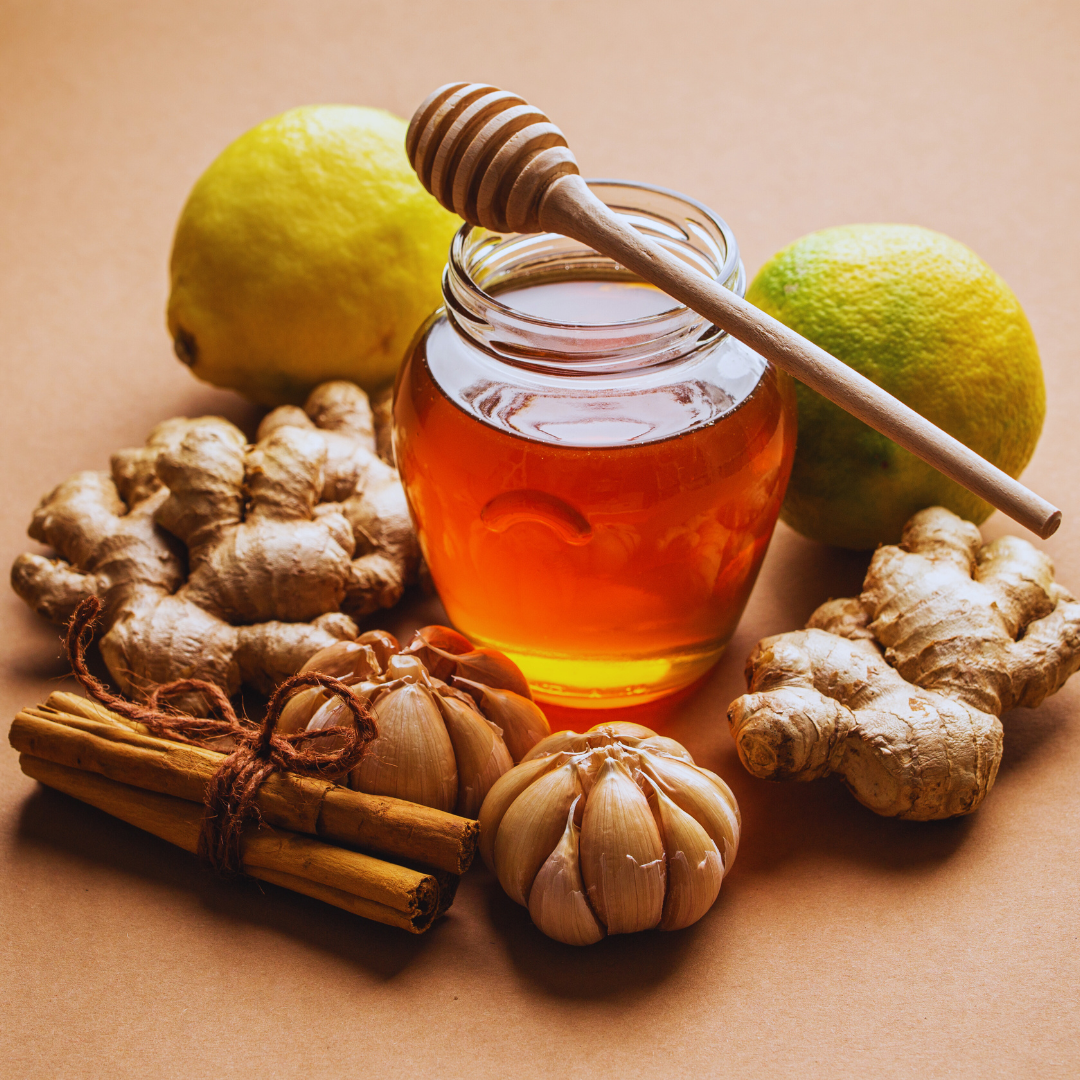DIY Herbal Remedies for Common Colds: Simple Solutions to Soothe Your Symptoms
As cold and flu season approaches, many seek natural ways to alleviate symptoms. DIY herbal remedies offer a practical solution for managing common cold symptoms such as cough, sore throat, and congestion. With easily accessible ingredients, individuals can create effective treatments right in their own kitchens.
Herbs like ginger, elderberry, and peppermint have been used for generations to provide relief during respiratory illnesses. Each of these herbs carries unique properties that can help boost immunity, soothe inflammation, and alleviate discomfort associated with both colds and the flu.
Exploring these herbal options can empower individuals to take control of their health during the colder months. By opting for natural remedies, they can experience not just symptom relief but also a sense of well-being that complements their overall health.
Understanding the Common Cold and Immunity
The common cold is a prevalent respiratory infection triggered by various viruses. Understanding its causes, symptoms, and how the immune system responds is crucial for effective management and prevention.
Causes and Transmission of Viral Infections
The common cold is primarily caused by rhinoviruses, although other viruses like coronaviruses and adenoviruses can also be responsible. These pathogens spread through respiratory droplets when an infected person coughs or sneezes.
Touching contaminated surfaces and then touching the face can also facilitate transmission. Cold virus particles can survive on surfaces for several hours, emphasising the importance of hygiene. Frequent handwashing and avoiding close contact with sick individuals are effective preventive measures.
Key Cold Symptoms and Complications
Common symptoms include a runny or congested nose, sore throat, coughing, sneezing, and mild body aches. Symptoms typically appear one to three days after exposure to the virus and can persist for up to two weeks.
In most cases, colds resolve without complications. However, for some individuals, particularly the elderly or those with weakened immune systems, cold symptoms can lead to more serious conditions such as bronchitis or pneumonia. Monitoring symptoms closely is essential for early intervention.
Role of the Immune System in Recovery
The immune system plays a vital role in combating cold viruses. Upon infection, it activates various cells, including T-cells and B-cells, which work to identify and eliminate the pathogens.
Antibodies are produced to neutralise the virus, and the inflammatory response helps to manage symptoms such as congestion and sore throat. Adequate rest, hydration, and nutrition support immune function. People with strong immune systems often experience milder symptoms and more rapid recovery.
Essential DIY Herbal Remedies
The following remedies harness the natural properties of common ingredients to offer relief from cold symptoms. Each one provides specific benefits that can support recovery and comfort during illness.
Honey and Its Antibacterial Benefits
Honey is known for its natural antibacterial properties, making it an effective remedy for soothing sore throats and coughing. It contains compounds such as hydrogen peroxide, which contribute to its ability to combat bacteria.
For best results, raw honey is recommended due to its higher enzyme content. It can be taken alone or mixed into herbal teas. Adding honey to warm water with lemon enhances its soothing effects, providing comfort and hydration.
Caution should be taken when using honey with young children under 12 months due to the risk of botulism. It’s always wise to consult healthcare professionals when considering herbal treatments.
Ginger and Black Pepper for Soothing Relief
Ginger is a powerful anti-inflammatory herb that can help alleviate cold symptoms. It promotes circulation and warms the body, which can be especially comforting during chills.
Combining ginger with black pepper increases the absorption of ginger’s active compounds, enhancing its overall effectiveness. Fresh ginger can be steeped in hot water, creating a revitalising tea.
This warming beverage may also assist in clearing congestion, thanks to its ability to promote sweating and relieve pressure in the sinuses. Adding a dash of honey can further enhance flavour and health benefits.
Garlic for Immune Support
Garlic is valued for its immune-boosting properties, making it a staple in herbal remedies. It contains allicin, known for its antimicrobial effects, which may help fight off viruses.
Incorporating fresh garlic into meals is an easy way to utilise its health benefits. It can be added to soups, broths, or taken raw when mixed with honey for a potent remedy.
Consistency is key to experiencing its full benefits. A daily intake during the cold season may support the body in warding off infections effectively.
Peppermint and Herbal Teas for Congestion
Peppermint offers menthol, which can act as a natural decongestant. It helps relax the muscles of the respiratory tract, making breathing easier.
Peppermint tea is a popular choice for easing congestion and soothing sore throats. Adding other herbal ingredients like chamomile or eucalyptus can further enhance its calming effects.
For steam inhalation, a few drops of peppermint oil can be added to hot water, providing relief from blocked sinuses. This method can also help reduce coughing and improve respiratory comfort.
Supporting Natural Recovery at Home
Maintaining support for recovery from a common cold can be achieved through proper hydration, an enhanced intake of vitamins, and herbal preparations. Focusing on these key areas is essential for comfort and healing during this time.
Hydration and Its Importance
Staying well-hydrated is crucial when managing a cold. Water, herbal teas, and broths help to thin mucus, making it easier to expel. Ginger tea is particularly effective; it combines hydration with anti-inflammatory benefits.
Fluids can also combat fatigue and prevent dehydration, commonly caused by fever. Aiming for at least 2-3 litres of fluids daily can bolster recovery. Incorporating electrolytes through natural sources like coconut water or homemade electrolyte drinks can further aid hydration.
Boosting Vitamin C and Vitamin E Intake
Vitamin C is vital for immune function. Foods rich in this vitamin, such as citrus fruits, strawberries, and kiwi, should be included in the diet. Incorporating these fruits in morning smoothies or snacks can enhance intake.
Vitamin E also plays a role in immunity. Nuts and seeds, such as almonds and sunflower seeds, are excellent sources. Preparing a trail mix with dried fruits and nuts can provide both vitamins in a convenient form.
Daily consumption of these essential nutrients can support the body’s natural defence mechanisms, increasing the likelihood of a quicker recovery.
DIY Tinctures and Herbal Preparations
Herbal tinctures offer concentrated benefits from various plants. For common colds, echinacea, elderberry, and garlic are notable options. They can be prepared by steeping dried herbs in alcohol or vinegar for several weeks.
Additionally, ginger tea can be an excellent home remedy. It can be made by steeping fresh ginger slices in hot water. Adding honey and lemon not only improves the taste but also provides supplementary benefits.
Always consult a healthcare professional before starting any new herbal remedies, especially if the individual is on medication or has pre-existing health conditions. Homemade preparations can serve as valuable allies in the pursuit of wellness.
When to Seek Professional Advice
It is important to recognise when a common cold warrants professional attention. This section discusses how to identify severe symptoms and ensures the safe use of herbal remedies.
Recognising Severe Symptoms
Individuals experiencing severe symptoms should consult a healthcare professional promptly. Key indicators include:
- High fever: A temperature above 38.5°C that lasts more than three days.
- Persistent sore throat: Pain that intensifies and is accompanied by difficulty swallowing or breathing.
- Severe nasal congestion: Unable to breathe comfortably or unable to smell or taste adequately.
Other alarming signs include unexplained rash, wheezing, or chest pain. If symptoms persist beyond 10 days or if new symptoms arise, it is advisable to seek medical help to rule out secondary infections or complications such as bronchitis or sinusitis.
Safe Use of Herbal Remedies
While many herbal remedies can alleviate cold symptoms, caution is essential. Users should be aware of potential interactions with prescription medications.
Consulting a healthcare provider is recommended, especially if:
- The individual has underlying health conditions such as asthma or diabetes.
- There are concerns about allergies to specific herbs.
- They experience side effects like nausea or dizziness from herbal treatments.
Researching credible websites and resources can guide safe practices. It’s crucial not to exceed recommended dosages, as this might lead to adverse effects.


